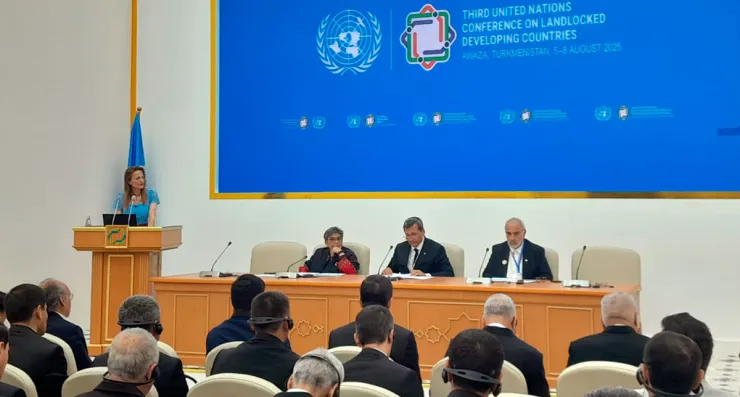Infertility is one of the neglected public health issues around the world. Infertility is defined as the inability of establishing a pregnancy after trying to conceive for at least six months or one year by having normal sexual intercourse without contraceptives.
The World Health Organisation (WHO) estimates that 8–12% of couples or one out of every ten couples - that is roughly 60 to 80 million men and women globally experience difficulty conceiving a child. Countries and regions have different rates of infertility. The consequences of infertility in these countries range from economic hardship, to social isolation, violence and denial of proper death rites. Couples experience distress when they are unable to have children, feel left out, incompetent, and excluded. Negative consequences of childlessness are experienced to a greater degree in developing countries when compared with western societies. Psychological consequences of infertility are directly associated with the duration of marital life. Some individuals may adopt corrective behaviors and retain fertility as a result of being aware of the potential concerns.
Infertility is one of the common problems in Nepal that many individuals must deal with. It can also have social consequences, as people may face pressure from friends, family, and society to have children. Some people may feel isolated or excluded from social events or activities that revolve around parenting or child-rearing. In addition, infertility can impact a person's sense of identity and may cause them to question their role in their family or community.
Late marriages and long separations shape new face of infertili...

In both men and women, there are several causes of infertility. Apart from anatomical, genetic, endocrinological, and immunological issues, a significant proportion of women suffer from menstrual disorders, health issues (STI, obesity, thyroid, and diabetes), postpartum and post-abortion infection, tubal damage, pelvic inflammatory diseases (PIDs), and ovulation dysfunction, including hormonal imbalances all of which are reported causes of infertility in women. Male infertility is caused by abnormalities in sperm fluid, sexual dysfunction, vascular anomalies, and anti-spermatogenesis factors.
Treatment for infertility depends on the underlying cause ranging from pharmaceuticals to embryo implantation through assisted reproductive technologies (ART). There are treatments designed exclusively for men or women, as well as treatments that require both couples. In some cases, simple lifestyle changes, such as losing weight or quitting smoking, can improve fertility. In other cases, medication or surgery may be necessary to treat the underlying cause of infertility. In 85% to 90% of cases, infertility is treated with traditional medical procedures such as medication or surgery. For example, a woman with polycystic ovary syndrome (PCOS) may be prescribed medication to regulate her hormones and stimulate ovulation. A man with a low sperm count may be treated with medication to improve sperm production. In cases where the cause of infertility is unknown or cannot be treated, assisted reproductive technologies such as in vitro fertilization (IVF) may be used. Moreover, if fertility treatments fail, it is acceptable to use donated eggs or sperm or to have another woman carry a fetus also through IVF. It involves fertilizing an egg outside of the body and then transferring the embryo back into the uterus. Although IVF is not always successful, it is the most effective treatment for infertility and has helped many couples have children.
Although health services are accessible in Nepal, they are only provided in private hospitals, are restricted to urban areas, and are exceedingly expensive. Furthermore, its affordability and accessibility have been almost limited to people from upper socioeconomic groups, and it cannot be afforded by people from poor and intermediate socioeconomic strata. There are extremely few skilled health care practitioners in the case of infertility. Individuals and couples living in low-income areas are also unable to receive these services. Aside from that, a lack of awareness of treatment options in resource-limited settings adds to infertility.
Infertility is a growing problem in Nepal that requires exposure. Despite the fact that infertility is not a life-threatening issue, it has significant negative effects on community health, including depression, anxiety, domestic violence, marital stress, intimate partner violence, and social isolation. Even so, there hasn't been a successful program put in place in Nepal to address the numerous reasons for infertility and reduce their impact. Because it is not a condition that poses a threat to life or causes invisible losses, the issue of infertility has not received the attention it deserves, despite having numerous negative effects.
Significant adverse psychological effects linked to infertility are also reported by infertile couples. As a result, infertility must be addressed as a public health issue rather than just a medical condition. Therefore, a campaign to raise awareness and advocate for reforms can improve the affected people's circumstances. In addition, the Government should take steps and allocate resources to low-cost IVF and infertility treatment services so that everyone, especially those in lower socioeconomic groups, can access and afford them. The national policy guidelines and service standards for sexual and reproductive health and rights should encompass the management of infertility.
Infertility is a complex condition with many potential causes, so it is not always possible to prevent it. However, there are some steps that people can take to improve their chances of having a healthy pregnancy. For example, both men and women can improve their fertility by maintaining a healthy weight, eating a balanced diet, and avoiding tobacco and excessive alcohol. In addition, women can take steps to regulate their menstrual cycle, such as tracking their ovulation and avoiding excessive exercise or stress. Men can protect their fertility by avoiding hot baths or saunas, which can raise the temperature of the testicles and decrease sperm production. It is also important for both men and women to avoid sexually transmitted infections, as some of these infections can cause infertility. Finally, it is recommended that couples who are trying to conceive see a healthcare provider for regular check-ups and to discuss any potential fertility issues.
Infertility is a result of a complex interaction of biological, environmental, and cultural factors that must be understood at the local community level in order to provide complete reproductive health care services to address the problem.


























-1200x560-1771928761.webp)












